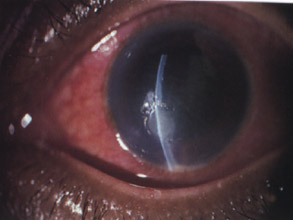 Two new studies have concluded that the risk of eye disease associated with internet/mail order purchase of contact lenses is nearly five times higher than when lenses were brought from an optometrist.
Two new studies have concluded that the risk of eye disease associated with internet/mail order purchase of contact lenses is nearly five times higher than when lenses were brought from an optometrist.
The two papers on contact lens-related microbial keratitis (MK) published online ahead of the publication in the American Academy of Ophthalmology's journal Ophthalmology have identified the risk factors for the disease for CL wearers and findings have flagged up that those patients who buy their lenses online are at a greater risk of infection.
The first study carried out by Professor Fiona Stapleton and co-workers found that the risk of infection was 4.76 times higher for those consumers who brought their lenses from sources other than their optometrist.
Register now to continue reading
Thank you for visiting Optician Online. Register now to access up to 10 news and opinion articles a month.
Register
Already have an account? Sign in here
